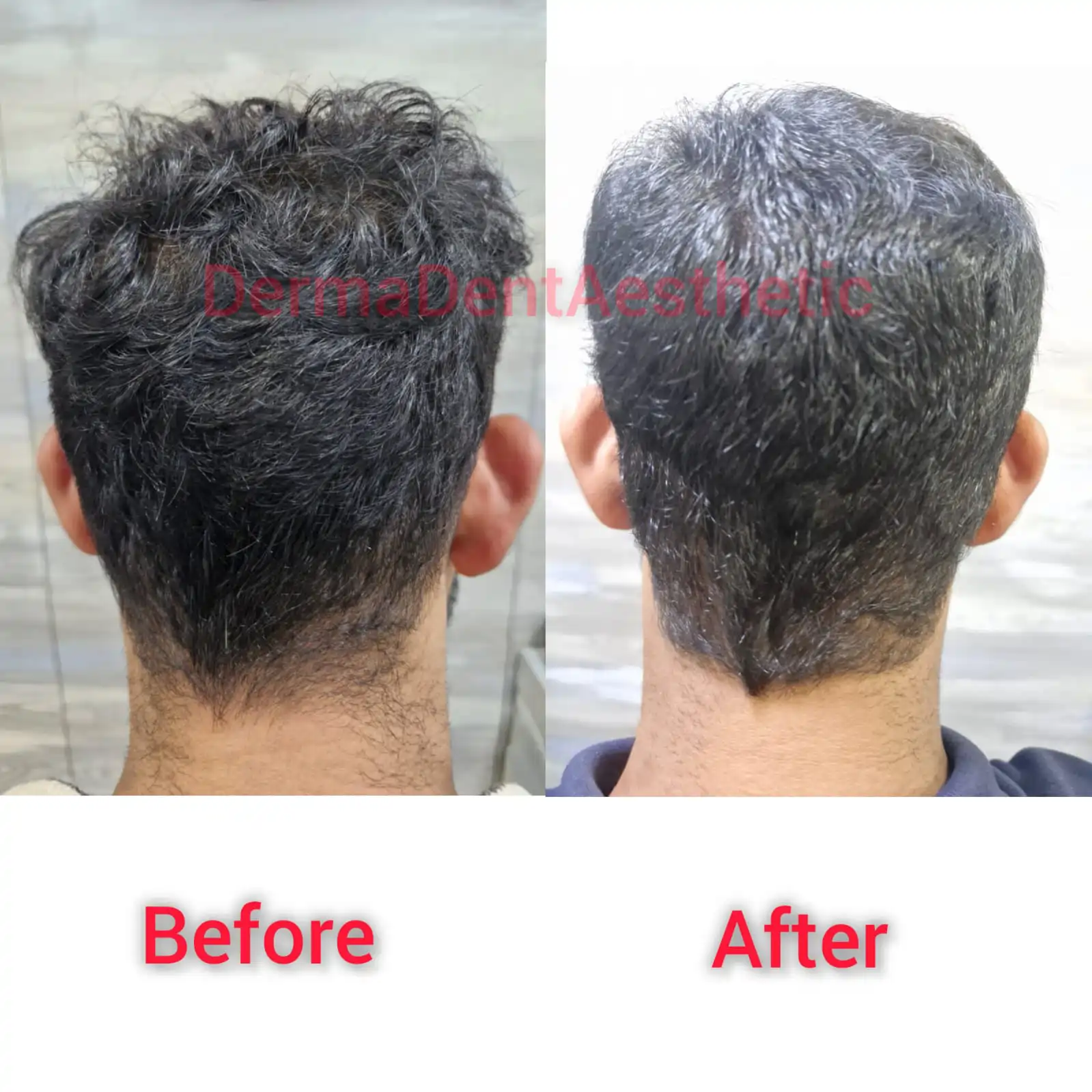Hair Loss

Hair Treatment
What is Hair Loss?
Understanding Hair Loss (Alopecia)
"Hair loss, or alopecia, is the thinning or loss of hair from the scalp or body. It can be temporary or permanent and affects both men and women."
Types of Hair Loss
- Androgenetic Alopecia: Genetic pattern baldness in men and women.
- Telogen Effluvium: Temporary shedding due to stress, illness, or medications.
- Alopecia Areata: Autoimmune condition causing patchy hair loss.
- Traction Alopecia: Due to tight hairstyles pulling on hair follicles.
- Scarring Alopecia: Permanent loss from inflammation or skin disorders.
Causes of Hair Loss
| Category | Common Causes |
|---|---|
| Genetic | Family history of baldness |
| Hormonal | Thyroid problems, PCOS, menopause |
| Medical | Anemia, autoimmune diseases, infections |
| Lifestyle | Poor diet, stress, smoking |
| Medications | Cancer treatment, antidepressants, beta-blockers |
Diagnosis
A doctor may perform scalp examination, blood tests, pull test, or biopsy to determine the cause.
Treatment Options
- Minoxidil: Topical solution to stimulate hair growth.
- Finasteride: Oral DHT blocker for men.
- PRP Therapy: Platelet-Rich Plasma injections.
- Hair Transplant: Surgical solution for advanced loss.
- Supplements: Iron, zinc, biotin if deficient.
Prevention Tips
- Eat a balanced diet rich in protein and vitamins.
- Avoid tight hairstyles and harsh treatments.
- Manage stress and sleep well.
- Use mild shampoos and avoid overwashing.
When to See a Doctor?
- Sudden or patchy hair loss.
- Persistent shedding after illness or childbirth.
- Itchy, red, or painful scalp.
- Family history of early baldness with concern.
Medicine Use Disclaimer: This information is for educational purposes and does not replace medical advice. Please consult a dermatologist for diagnosis and treatment.
